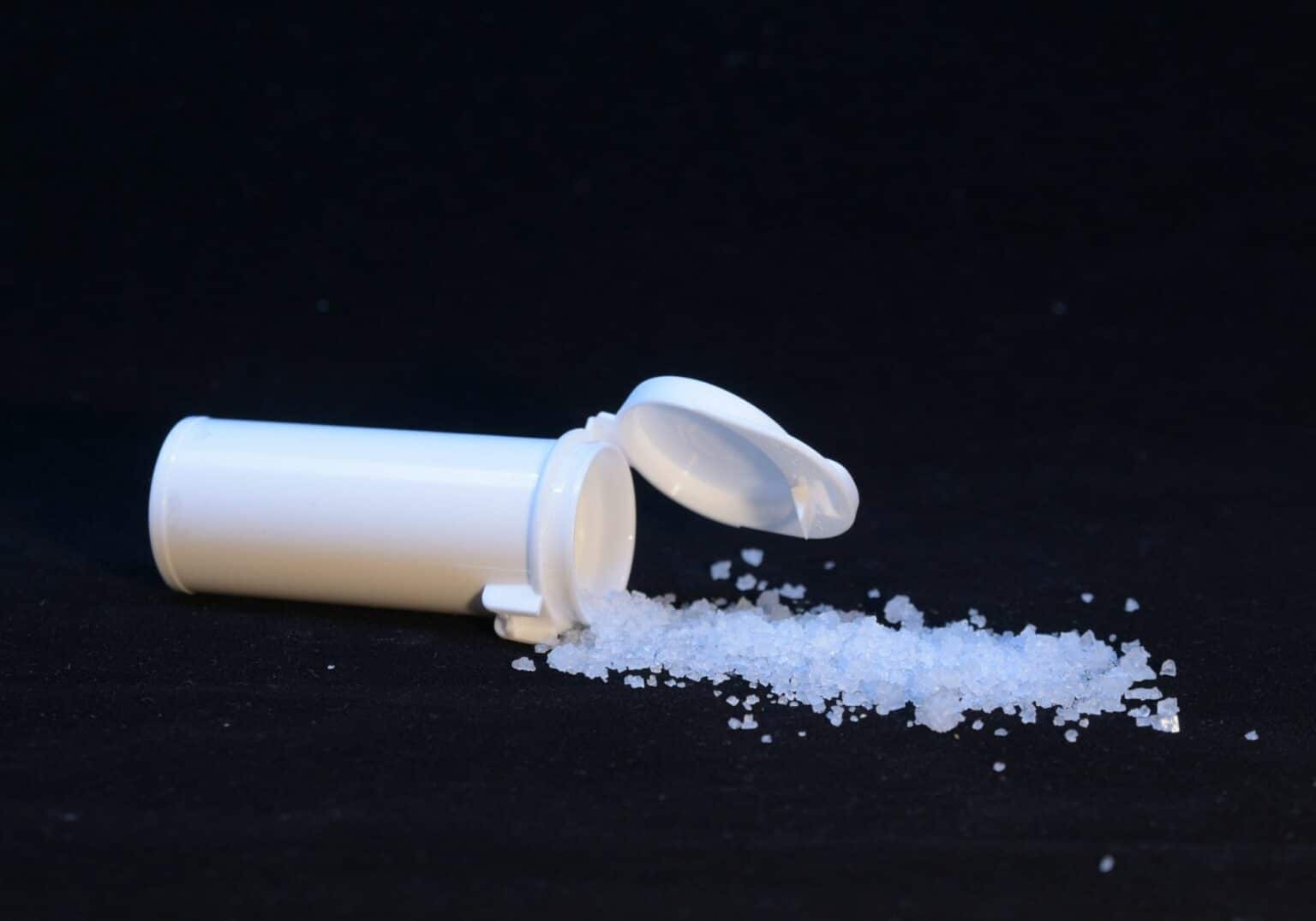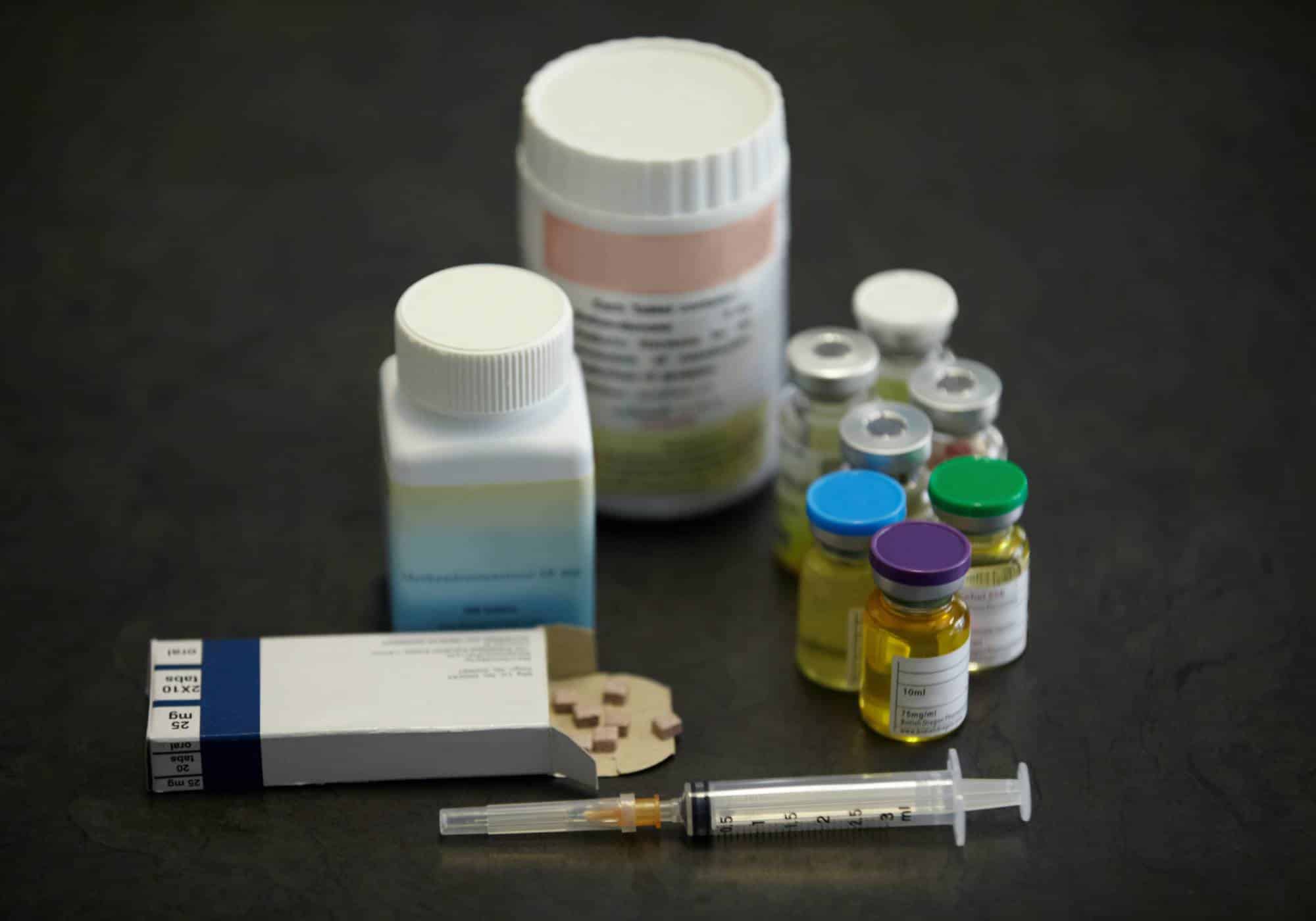Methamphetamines, commonly known as meth, are highly potent and addictive substances. They are found in various forms, ranging from illegal street drugs like crystal meth to prescription medications that are misused. The risk of chemical dependency on methamphetamines is high, even when they’re not used recreationally. When someone dependent on meth stops using it, their body undergoes intense withdrawal as it detoxifies. These withdrawal symptoms can be severe and rapid, making professional assistance from a meth abuse treatment center crucial for those looking to overcome addiction safely and effectively.
Understanding what to expect during detox can significantly enhance the success rate of treatment. At Hope Harbor Wellness we’re committed to guiding you through this temporary yet challenging phase. If you or someone you know is struggling with meth addiction in Atlanta, GA, don’t hesitate to reach out to us at 678-605-9725 for support and information on how we can assist in your journey to recovery.
Methamphetamine Withdrawal
Methamphetamines fall under the category of stimulants, a type of drug that can adversely affect various body systems, including the central nervous system (brain), respiratory system (breathing), and cardiovascular system (heart). Meth can appear in several forms:
- Pills
- Powder
- Liquid
- Crystal methamphetamine, commonly known as crystal meth
It’s also known by various street names, such as meth, crystal, ice, speed, jib, and crank. Understanding these forms and names is crucial in recognizing and addressing meth abuse.
Remember, seeking help is a sign of strength, not weakness. At Hope Harbor Wellness, we’re here to support you every step of the way towards a healthier, meth-free life.
Signs That You Have a Meth Addiction
Meth addiction often manifests through various signs and behaviors that can be noticeable in oneself or in someone close. Being aware of these signs is crucial for early intervention and effective treatment. Here are some indicators that might suggest a meth addiction:
- Rapid Weight Loss: A sudden and dramatic decrease in weight over a short period.
- Extreme Fatigue: Experiencing excessive sleepiness or a general lack of energy.
- Energy Fluctuations: Unusual patterns of high energy followed by significant crashes.
- Risk-Taking Behavior: An increase in behaviors that involve significant risks.
- Mood and Appearance Changes: Noticeable shifts in mood or physical appearance.
- Financial Struggles: Facing severe financial issues that are uncharacteristic.
- Social Withdrawal: Pulling away from friends, family, and social activities.
- Neglecting Responsibilities: Failing to meet obligations at home, work, or school.
If these signs resonate with your experience or that of someone you know, it’s important to consider seeking help. Addressing meth addiction early can greatly improve the chances of successful detox and recovery. Remember, acknowledging the need for help is a brave and critical first step towards healing and rehabilitation.

Meth Withdrawal Timeline: How Long is Meth Withdrawal?
The duration and intensity of meth withdrawal can vary significantly, influenced by factors such as the pattern of use (e.g., binge and crash, chronic daily use) and individual differences. Understanding this timeline is crucial for those preparing for or undergoing withdrawal.
Initial Phase of Meth Withdrawal:
- Starts Within 24 Hours: Meth withdrawal symptoms typically begin within 24 hours after the last dose.
- Duration: This initial phase can last from a few days to several weeks, depending on various factors.
Acute Withdrawal Symptoms:
- Onset and Peak: Symptoms like dysphoria (a state of unease or dissatisfaction), anxiety, and agitation usually start and peak shortly after the last use.
- Duration: Research indicates that acute withdrawal symptoms commonly last between 7 to 10 days. However, they can extend up to 2 weeks. Cravings are often the most reported symptom during this period.
Protracted Withdrawal Phase:
- Characteristics: This phase involves persistent symptoms that are similar to the acute phase but tend to be milder and more stable.
- Duration: It typically lasts an additional 2 to 3 weeks after the acute withdrawal phase has ended.
Role of Medically Managed Withdrawal:
- Support and Safety: Medically managed withdrawal, which includes the use of medications during the withdrawal period, offers crucial support. It ensures a safer and more comfortable withdrawal experience.
- Preventing Relapse: This approach also plays a vital role in mitigating the risk of relapse.
Understanding the meth withdrawal timeline is essential for anyone embarking on the journey to recovery. It provides a framework for what to expect and underscores the importance of seeking professional support to navigate this challenging process safely and effectively.
Timeline of Meth Withdrawal Symptoms
The journey through methamphetamine withdrawal is deeply personal, with each individual experiencing it in their own way. The intensity and duration of withdrawal symptoms are influenced by several key factors:
- Method of Meth Use: Whether you snort, smoke, or inject meth can affect your withdrawal experience.
- Dosage: The amount of meth used, which often increases as dependence develops.
- Purity of the Drug: The quality and purity of the meth you’ve been using.
- Duration of Use: How long you’ve been using meth or crystal meth.
- Co-occurring Issues: The presence of any other substance abuse and mental health challenges.
Initial Withdrawal Phase:
- The first stage of withdrawal can last up to two weeks. For specific details about your situation, consulting a healthcare provider is advisable.
Extended Withdrawal Symptoms (Post-Acute Withdrawal Symptoms – PAWS):
- Some individuals may encounter PAWS, which can emerge a few months after the initial detox and potentially last intermittently for up to a year.
- These symptoms can include persistent intense drug cravings, severe depression, or other withdrawal symptoms.
- The likelihood of experiencing PAWS depends on individual factors, such as extensive use of other drugs, alcohol abuse, and mental health conditions.
General Meth Withdrawal Timeline:
- This timeline provides a general overview of what to expect during meth and crystal meth withdrawal. However, it’s important to remember that each person’s experience will vary based on their unique circumstances and history with the drug.
Understanding this timeline is crucial for preparing for the withdrawal process and recognizing the importance of professional support during this challenging period.

Meth Withdrawal Symptoms
The effects of a methamphetamine high are fleeting, typically lasting around 30 minutes, yet the drug can linger in your system for up to 12 hours. It’s after this period that withdrawal symptoms typically begin, becoming more pronounced after 24 hours. These symptoms can be both physical and psychological, impacting various aspects of health and well-being.
Common Symptoms of Meth Withdrawal:
- Severe Headaches: Intense and frequent headaches are a common symptom.
- Appetite Changes: A noticeable loss of appetite often occurs.
- Concentration Difficulties: Challenges in focusing or maintaining attention.
- Memory Issues: Experiencing lapses in memory.
- Exhaustion: Feeling overwhelmingly tired or fatigued.
- Sleep Disturbances: Struggling with insomnia or sleeplessness.
Additional Symptoms May Include:
- Paranoia: Experiencing irrational distrust or suspicion.
- Digestive Issues: Symptoms like diarrhea or constipation.
- Intense Drug Cravings: A strong desire to use meth again.
- Respiratory Problems: Difficulty in breathing.
- Sweating or Clammy Skin: Changes in skin condition and temperature regulation.
- Irregular Heartbeat: Experiencing heart palpitations or irregular rhythms.
- Uncontrollable Shaking: Involuntary tremors or shaking.
Detoxing from meth can be an immensely challenging process. The difficulty in coping with withdrawal symptoms is a key reason why many individuals seek professional help to quit, especially after unsuccessful attempts to do so independently. Meth rehab centers offer more than just withdrawal management. They provide essential support in breaking negative behavioral patterns associated with addiction and equip individuals with long-term strategies for maintaining sobriety. Seeking professional help can be a vital step in the journey towards recovery.
How Can I Help Someone Going Through Methamphetamine Withdrawal?
Seeing a loved one go through methamphetamine withdrawal can be distressing and may leave you feeling powerless. However, there are effective ways you can offer support during this challenging time:
- Promote Adequate Rest: Ensure the person gets plenty of sleep, which is vital for recovery.
- Encourage Hydration: Make sure they drink enough fluids to stay hydrated.
- Provide Nutritious Meals: Offer healthy food options to support their physical recovery.
- Support a Drug-Free Lifestyle: Help them learn and adapt to living without the drug.
- Emphasize Healing Time: Remind them that recovery is a gradual process, and both the brain and body need time to heal.
- Acknowledge the Difficulty: Recognize and validate that withdrawal can be extremely challenging and sometimes painful.
- Offer Encouragement: Continuously encourage them, highlighting that seeking help and committing to recovery is a brave and wise decision.
- Advocate Professional Help: Encourage them to connect with an Addictions Counsellor or healthcare professional for specialized support.
Your role in providing a supportive and understanding environment can make a significant difference in their journey towards recovery. Remember, your support can be a crucial element in helping them navigate through the withdrawal process and move towards a healthier, drug-free life. If you or a loved on is struggling with meth withdrawal or meth addiction, call us today to being your meth withdrawal treatment in Atlanta, GA.
Why Does Crystal Meth Withdrawal Occur?
Withdrawal from crystal meth or methamphetamine occurs as a result of the body’s dependence on the drug. Research indicates that a single use of meth or crystal meth typically doesn’t lead to withdrawal symptoms. It’s the development of a dependence on the drug that triggers withdrawal.
When you find yourself experiencing withdrawal symptoms upon attempting to quit crystal meth or meth, it’s a significant sign of a substance use disorder. Regular use of these substances changes the brain’s chemical balance, leading the brain to perceive the drug as essential for normal functioning. Consequently, when the drug is no longer present, the body undergoes intense discomfort. This discomfort is essentially the body’s way of signaling its perceived need for the drug to function properly.
Understanding this process is crucial for recognizing the seriousness of dependence and the importance of seeking professional help for recovery. Withdrawal symptoms are not just a physical response but also a clear indication of the profound impact these substances have on brain chemistry.
Can Using Meth Once Cause Withdrawal?
Presently, there’s a lack of comprehensive research to conclusively say that using methamphetamine just once can lead to withdrawal symptoms. According to the National Institute on Drug Abuse (NIDA), withdrawal typically occurs in individuals who have used meth chronically and have developed a dependence on it. This happens when they suddenly stop or significantly reduce their meth intake.
Meth Withdrawal Medications
Currently, there are no specific medications designed to address meth withdrawal, and the FDA has not approved any medication treatments specifically for stimulant use disorders. However, in cases of medically supervised detox, patients may be given supportive medications to ease certain withdrawal symptoms like headaches or insomnia. These adjunctive treatments can provide some relief during the withdrawal process.
Treatment Options for Methamphetamine Withdrawal Symptoms
Experiencing withdrawal from meth or crystal meth can be a daunting challenge. The intense potency of methamphetamine makes quitting a tough journey, especially if you’re trying to do it alone.
Attempting to quit “cold turkey” at home is generally not advisable. The psychiatric symptoms and intense drug cravings that often emerge can be overwhelming without professional medical support.
Seeking assistance from trained healthcare professionals can significantly ease the process of meth or crystal meth withdrawal. Mental health services and specialized treatment facilities provide crucial medical supervision during this critical period.
Medically-Supervised Meth Withdrawal
In an addiction treatment center, your journey begins with a thorough assessment, allowing the medical team to understand your health and substance abuse history. This leads to a carefully monitored detoxification process.
While there are no medications specifically for meth withdrawal, treatments to alleviate physical symptoms like nausea or insomnia are often available. Additionally, therapists are typically present to address any psychological symptoms that may arise.
The advantages of medically-supervised withdrawal in a residential setting are manifold:
- Continuous monitoring for any medical or mental health complications.
- Structured support, allowing you to focus solely on recovery.
- An environment free from influences that might tempt you back into meth use.
- Nutritional support from dietary specialists, crucial given meth’s impact on eating habits and nutrient absorption.
Therapy for Meth Abuse Recovery
Post-detox, therapy becomes a vital component of recovery, addressing the psychological aftermath of meth withdrawal. It also aids in understanding the underlying causes of meth abuse and developing strategies for sustained sobriety.
Rehabilitation may include various effective behavioral therapies, such as:
- Cognitive-behavioral therapy (CBT): This approach helps clients identify and modify the negative thoughts and behaviors that contribute to substance abuse.
- Contingency management (CM): This method employs positive reinforcement, offering tangible rewards for achieving specific goals, like a drug-free test result.
Prioritizing Physical Health During Recovery
The detrimental effects of methamphetamine on physical health cannot be overstated. Recovery involves nurturing your body with nutritious food, especially as appetite often increases during this phase. A balanced diet rich in essential vitamins and minerals is key to restoring health.
Overcoming methamphetamine withdrawal is a multifaceted process that benefits greatly from professional medical supervision, structured support, and a comprehensive approach to both mental and physical health. With the right support, recovery is not just possible, but achievable.

Meth Withdrawal Risks & Outlook
Meth withdrawal presents significant challenges, primarily due to the risk of intense depression and suicidal thoughts. These symptoms can escalate to self-harm or even suicide, highlighting the importance of careful monitoring, support, and management during the withdrawal process.
The complexity of meth withdrawal can be heightened by various factors, including existing medical conditions, mental health issues, or the use of multiple substances simultaneously.
However, with appropriate treatment, individuals can successfully detox from meth and begin their journey to recovery from substance use disorders or meth dependence. Post-detox, continuing in a treatment program is crucial. This phase is vital for learning new coping skills, preventing relapse, and reinforcing the recovery process.
It’s important to note that the dropout rate from treatment programs for stimulant addiction, including meth, is relatively high. Therefore, not only is it essential to initiate treatment, but also to stay engaged and complete the meth rehab treatment program. This commitment is key to avoiding the detrimental effects of meth abuse and addiction and ensuring a successful recovery.
Meth Withdrawal Treatment at Hope Harbor Wellness
Located in the serene suburbs of Atlanta, Hope Harbor Wellness is your ally in the fight against meth addiction in Atlanta. Our meth drug rehab centers, dedicated to holistic recovery, are ideally situated to offer you the support you need.
Our compassionate outpatient program collaborates with top-tier medical meth detox facilities, ensuring a safe and effective detox process. Once free from addictive substances, you can seamlessly transition into one of our specialized outpatient treatment programs at Hope Harbor Wellness, designed to address substance use disorders:
- Outpatient Rehab: A flexible program tailored to fit into your daily life.
- PHP (Partial Hospitalization Program): Offers a structured yet non-residential approach to treatment.
- IOP (Intensive Outpatient Program): Provides more intensive care while allowing you to maintain daily responsibilities.
- Dual Diagnosis Treatment Program: Caters to those with co-occurring mental health disorders.
Our meth treatment programs incorporate a variety of interventions:
- MAT (Medication-Assisted Treatment): Utilizes medications to ease withdrawal symptoms and cravings.
- Psychotherapy: Addresses underlying psychological aspects of addiction.
- Group Therapy: Offers peer support and shared learning experiences.
- Individual Counseling: Provides personalized guidance and support.
- Family Therapy: Helps heal and strengthen family relationships.
- Holistic Therapies: Focuses on overall well-being, including physical, emotional, and spiritual health.
- Aftercare: Ensures ongoing support post-treatment.
Embark on your journey from addiction to recovery with Hope Harbor Wellness. Trust in our dedicated team to guide you every step of the way. For more information or to start your journey, call our admissions team at 678-605-9725.












